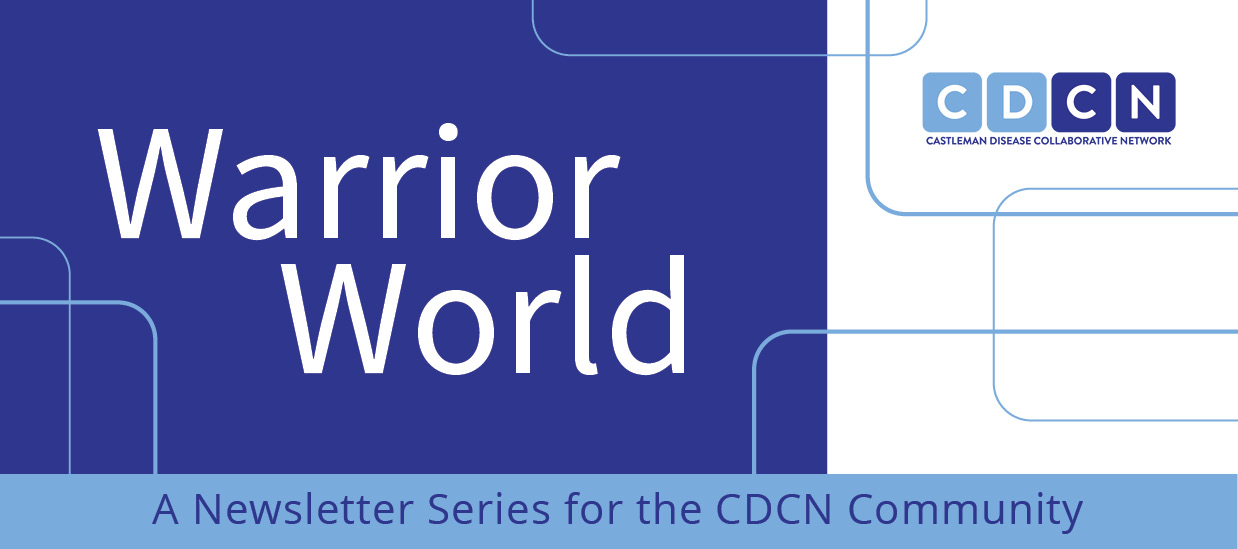
Fall 2024
Dear friends,
I’m excited to introduce to you the first edition of our newsletter series! Warrior World offers a new channel for us to shine a spotlight on the Castleman Disease Collaborative Network’s work to achieve our mission of curing Castleman disease.
I could not be more proud of how far we’ve come over the last 12 years and am so looking forward to sharing more regular updates on our progress.
I also want to take this opportunity to share that I recently co-founded the nonprofit organization, Every Cure, to spread the CDCN’s innovative drug repurposing work to many more diseases and it’s off to a really exciting start. While I’m deeply involved with Every Cure, leading the CDCN and the Center for Cytokine Storm Treatment & Laboratory here at Penn remains my “day job” and my good friend and Every Cure co-founder Grant Mitchell, MD, MBA, serves as CEO of Every Cure.
We are as committed as ever to turning hope into action for Castleman disease patients around the world and turning promising research into permanent cures. Our community should be so proud that Every Cure is built on the extraordinary foundation created by the CDCN, and the interconnectivity between these two organizations is invaluable to every patient with any disease for which there is no cure―yet.
Thank you so much for your continued support of our work!
Sincerely,
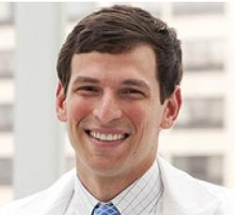

Cofounder and President, Castleman Disease Collaborative Network (CDCN)
Founding Director, Center for Cytokine Storm Treatment and Laboratory (CSTL)
Associate Professor of Medicine, University of Pennsylvania
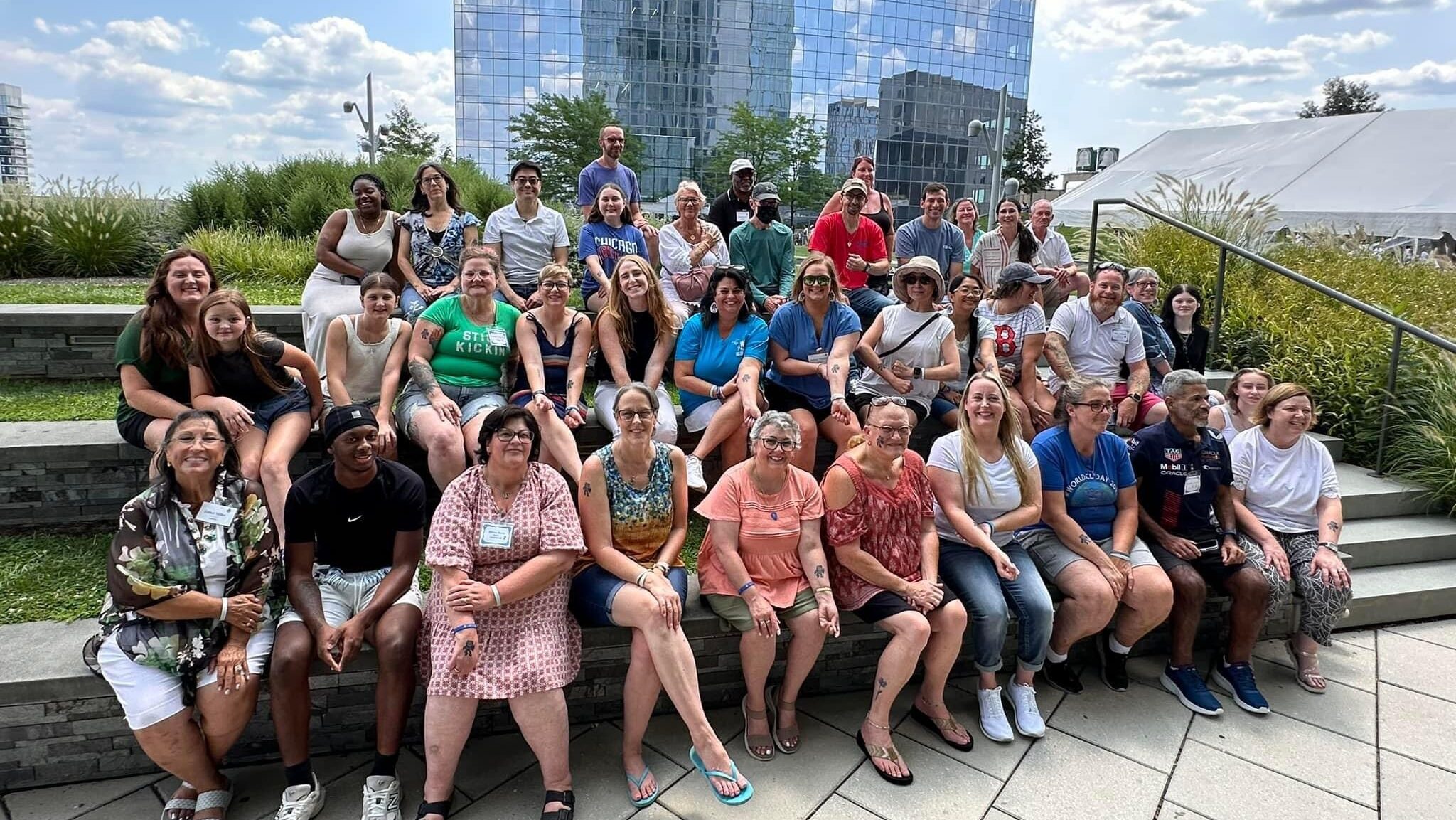
Annual Patient and Loved One Summit Delivers Education, Connection and Inspiration in Abundance
More than 200 patients and loved ones from around the world joined the CDCN in-person and virtually for our 2024 Patient and Loved One Summit! The annual three-day event, held this year in July on the campus of the University of Pennsylvania in Philadelphia, featured informational and coping sessions, research presentations, a Q&A with a panel of Castleman disease experts and opportunities for attendees to connect with one another and a “fun day” picnic lunch at a rooftop park offering stunning views of the city.
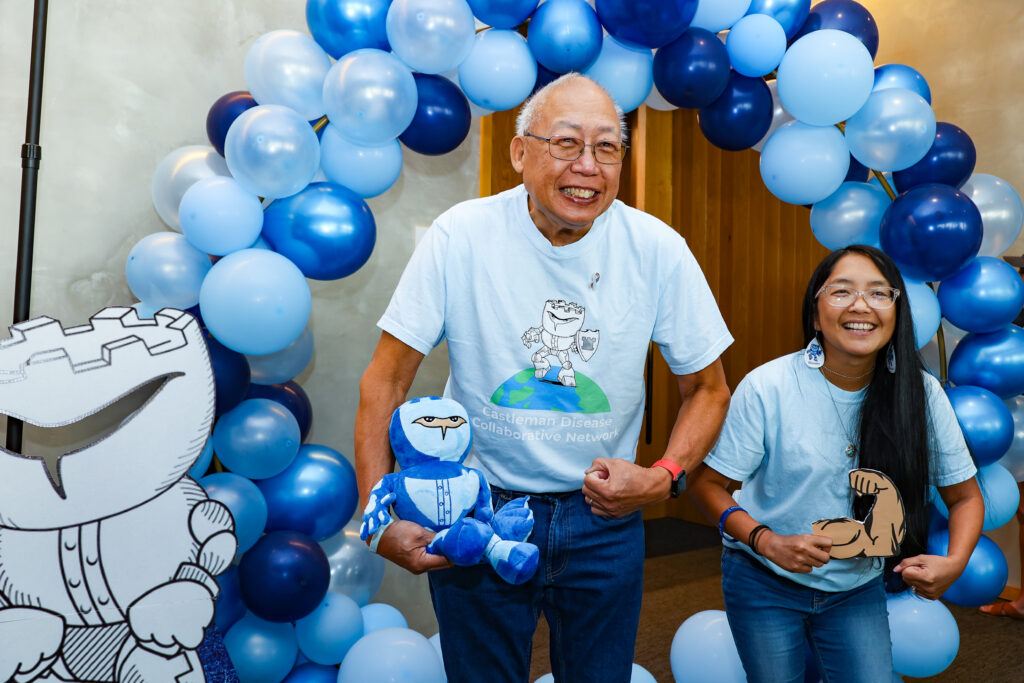 We had participants from five countries, including Australia, Canada, Chile and Ireland, and 21 states in the US, including California, Florida and Maine.
We had participants from five countries, including Australia, Canada, Chile and Ireland, and 21 states in the US, including California, Florida and Maine.
One of the highlights of the powerful weekend was giving out Castleman Warrior Awards to two amazing people. The CDCN congratulates Penny DeRemer, who was presented with our Patient of the Year Award, and Joe “Butch” Carleno, who received our Loved One of the Year Award. Both were celebrated during the Summit for their inspiring efforts to support our patient and loved one community in countless meaningful ways.
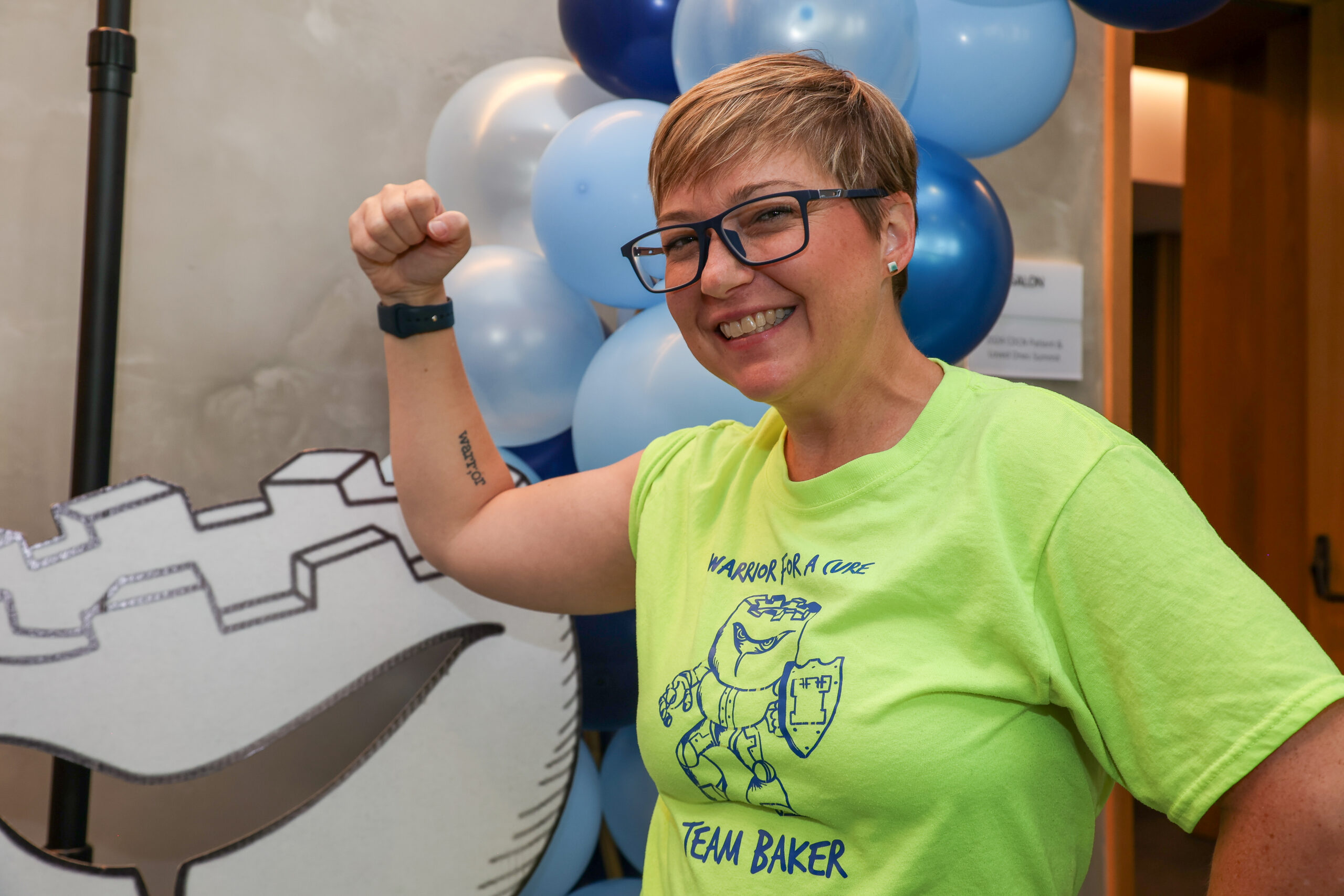
Thank you to our presenters and panelists, to our event sponsor Recordati, and to everyone who made our 2024 Summit a highly informative and enjoyable gathering for everyone who participated.
Complete recordings of this year’s sessions, including opening and closing remarks are available on the CDCN website.
Patient Profile
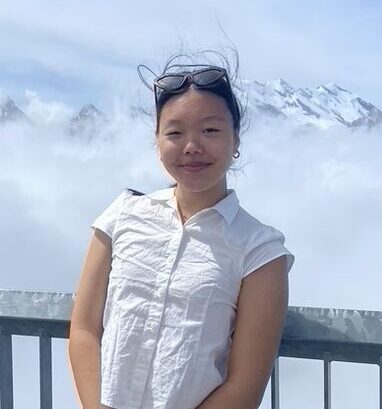
Madeleine Park was only ten years old when she developed a sudden illness that caused chronic and severe muscle pain, prevented her ability to think clearly, and made her feel “just awful.” Her parents took her from doctor to doctor for evaluation, but an accurate diagnosis remained elusive for two long and difficult years.
“I feel like I missed out on so much during that time,” recalls Madeleine. “I should have been in school like all my friends and everyone else my age. Instead, I spent my days in hospitals. As a middle schooler going through all of this, I just felt so alone, unheard and terrified.”
It was not until Madeleine lost the ability to walk that a full body scan revealed a mass the size of a grapefruit sitting on her heart. Within a matter of days, the mass was surgically removed, with the biopsy revealing unicentric Castleman disease (UCD).
Today, Madeleine is a healthy 17-year-old in her senior year of high school in Windermere, Florida, where she loves reading, spending time with family and friends, and dancing as a member of her school’s dance repertoire company. She has not identified a career path just yet, but she knows it will be about helping others.
This past summer, Madeleine and her brother served as interns at the CDCN, supporting the team on several projects and providing onsite assistance at the 2024 Patient and Loved One Summit. It’s a family affair, as their father is an active member of the CDCN Advisory Council.
“Interning at the CDCN, I’m amazed at the passion of the entire team,” says Madeleine. “I especially loved attending the Summit. I truly felt the community of warriors, and it was incredibly inspiring. We really care about each other, and that’s what makes this so special.”
Hear about Madeleine’s journey to diagnosis in her own voice in this powerful video she created for World Castleman Disease Day 2024.
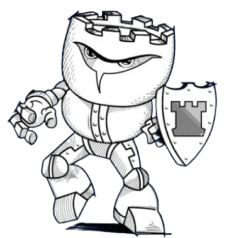
Physician-Scientist Focus
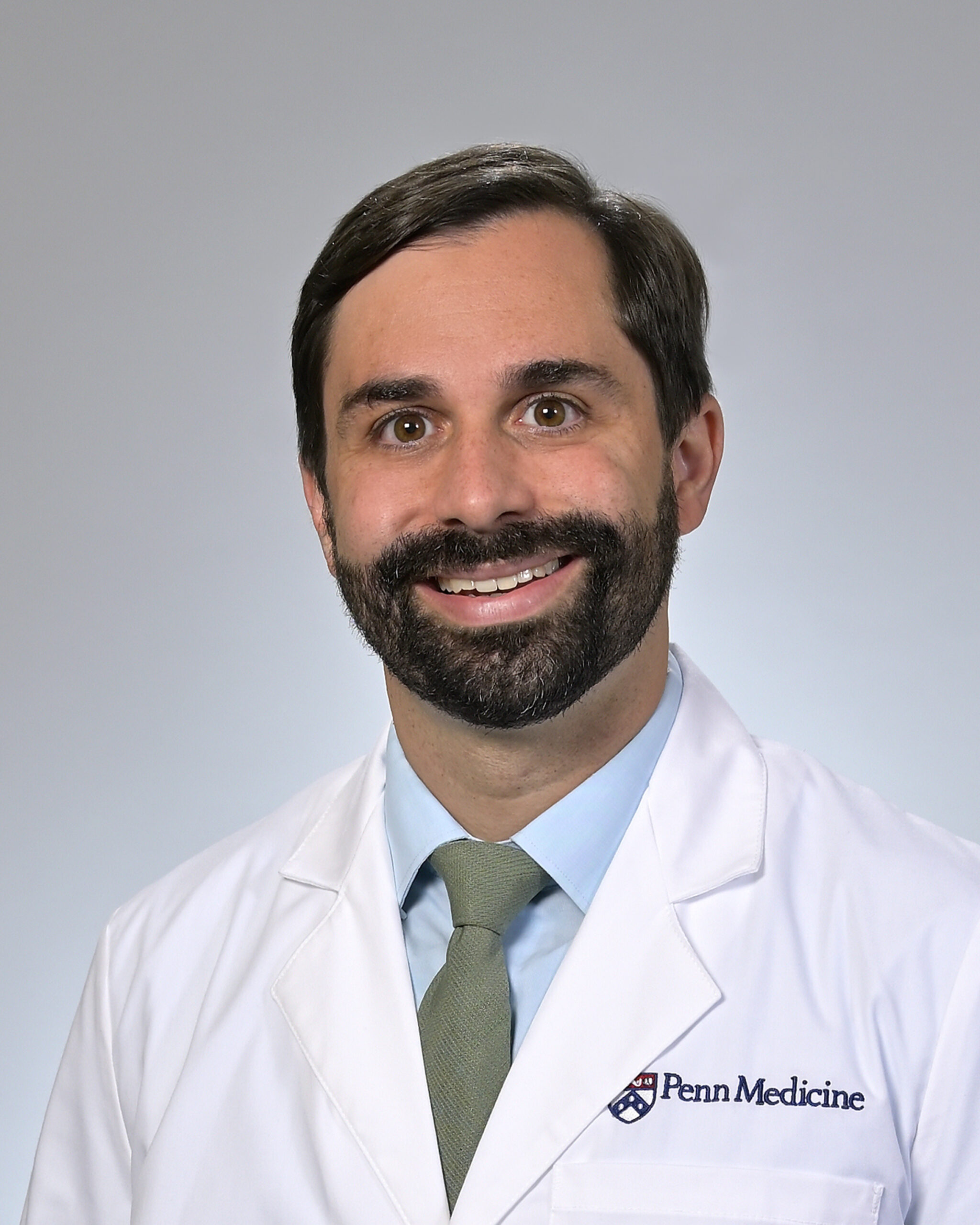
Joshua Brandstadter MD, PhD, MSc, is a physician-scientist, Instructor of Medicine in the Division of Hematology/Oncology at the University of Pennsylvania, and Director of Clinical Research at the Center for Center for Cytokine Storm Treatment & Laboratory (CSTL). Through his varied roles, he helps to lead our ACCELERATE Natural History Registry, he cares for patients with Castleman disease, and he conducts extensive laboratory research to identify the causes of this disease.
“I’m able to bring three different perspectives―that of a scientist, a clinical researcher and a treating clinician―as we push through new frontiers to better understand Castleman disease,” says Dr. Brandstadter. “I love exploring how the immune system plays roles in protecting our bodies, and sometimes causing harm to our bodies.”
At any given time, Dr. Brandstadter may be working on four to six research studies. But he says he is most proud of the work he does taking care of patients, and providing the knowledge and reassurance they need after receiving a rare disease diagnosis.
“It’s common that patients come to me after being told by the doctor who diagnosed them that they’ve never seen a Castleman disease patient before, which can feel very scary,” explains Dr. Brandstadter. “I’m able to tell them we see many patients with Castleman disease, we have a patient registry containing substantial medical data, and we’ve learned a lot about this disease and how to treat it effectively.”
When he is not in the lab or seeing patients, Dr. Brandstadter loves spending time with his wife and two young children at the playground, at their numerous activities, or serving as an assistant coach for his son’s ice hockey team. While he now lives in Swarthmore, he grew up in Long Island, and remains a huge fan of the New York Islanders.
Dr. Brandstadter holds an MSc in Integrated Immunology from the University of Oxford and a combined MD/PhD from Duke University. He completed his internal medicine and hematology/oncology training at the Hospital of the University of Pennsylvania.
Research Updates
-
Our Serum Proteomic Analysis of Cytokine-driven Entities (SPACE) Study is progressing well, with hundreds of patient samples obtained to help us identify a blood test that will significantly reduce the time to diagnosis for Castleman disease patients. We continue to collect the additional patient samples needed to make this work possible. If you have iMCD and are interested in contributing a blood sample towards our research, please contact castlebank@pennmedicine.upenn.edu.
-
Our Ruxolitinib Clinical Trial is anticipated to launch in early 2025, with the purpose of evaluating the efficacy of ruxolitinib in treating iMCD. We are close to finalizing a partnership with a leading biopharmaceutical company to conduct this trial and will share additional details as soon they become available.
-
The CDCN is currently collaborating with Sheffield University, KMC Health Care and Recordati on the Idiopathic Multicentric Castleman Disease Symptom Burden Scale Study, with the objective of creating a new symptom burden scale and improving patient care.
-
The 5th edition of the WHO Classification of Haematolymphoid Tumours is available online, and for the first time, it includes a section dedicated to Castleman disease.
-
We have reorganized our Publications webpage to make it easier than ever to review the latest research publications and to filter archival publications. We hope you will agree!
Highlights
At our October 2024 Virtual Community Gathering for patients and loved ones, the CSTL’s own Mateo Sarmiento Bustamante and Criswell Lavery presented their groundbreaking research regarding diagnostic delays for Castleman patients. A recording of this presentation is now available.
Dr. David Fajgenbaum received the 2024 WebMD Health Hero Award, recognizing his groundbreaking work in finding treatment for rare diseases. To date, his research has advanced 14 treatments for diseases that these drugs were not originally intended for. The use of artificial intelligence (AI) will continue to move this research forward with unprecedented speed. Check out the article and video.
Please join us in welcoming Larissa Borys to the CDCN and the CSTL. Larissa is a Penn alum who brings with her a wealth of experience from her previous research work at Columbia University. She will be taking on the role of clinical research coordinator as we bid farewell to Criswell Lavery, who has been an extraordinary team member and contributor during her time here.
Mark Your Calendar
Giving Tuesday, a movement created to unleash the power of radical generosity around the world, occurs annually on the first Tuesday following Thanksgiving. We hope you will remember the CDCN!
Each year, Rare Disease Day is recognized around the world, with the intention of raising awareness and generating change for the 300 million people living with a rare disease. Spread the word!
Our 2025 celebration of Quest for a Cure, the CDCN’s premier fundraising event, will once again be held at Appleford in Villanova, PA, located in the suburbs outside of Philadelphia. Save the date!
Join The Fight
Contribute Medical Data to the ACCELERATE Natural History Registry
ACCELERATE is the first-ever global patient registry for Castleman disease, with the goal of helping researchers identify patterns, build understanding and improve treatment options. Patients are encouraged to enroll at any stage of diagnosis and treatment, and can also be enrolled by surviving family members. Visit our website to learn more, or contact us at accelerate@uphs.upenn.edu or 215.614.0209.
Donate Samples for Research through CastleBank
The collection and study of blood and lymph node tissue samples donated by CD patients is critical to our research. The CDCN has made it very easy and cost-free for patients to share blood samples on an ongoing basis, and to share excess lymph node tissue samples from clinical procedures. Visit our website to learn more, or contact us at info@castlemannetwork.org or 267.586.9977.
Support High-Impact Research with Financial Contributions and Planned Gifts
The CDCN relies on financial contributions from individual donors and foundations to fund promising research studies and facilitate meaningful patient support initiatives. Visit our website for more information or to donate online. If you wish to speak with us regarding a contribution or a planned gift, contact us at gifts@castlemannetwork.org or 610.304.0696.